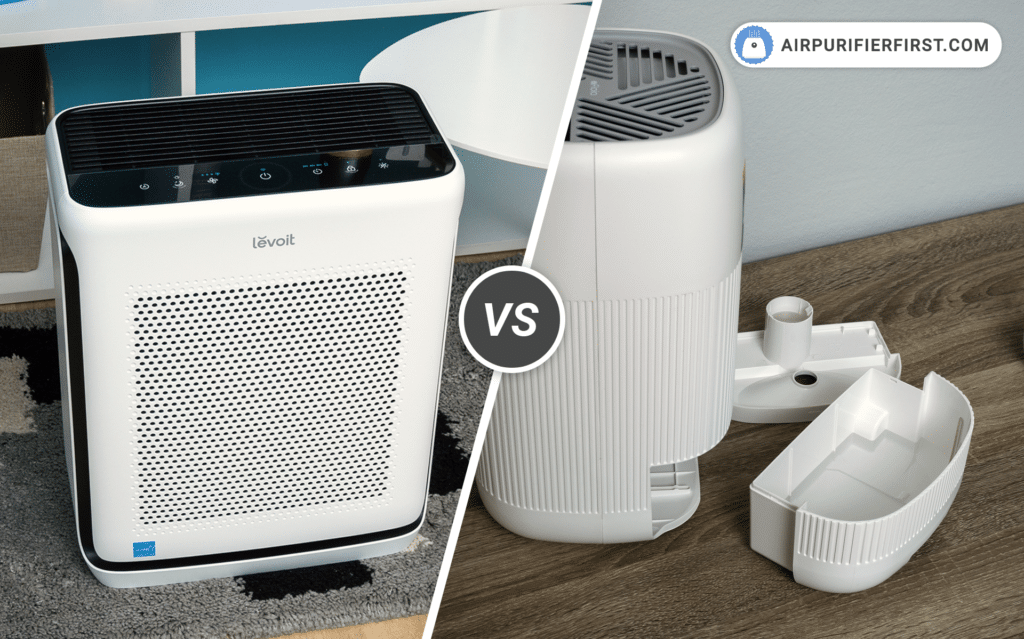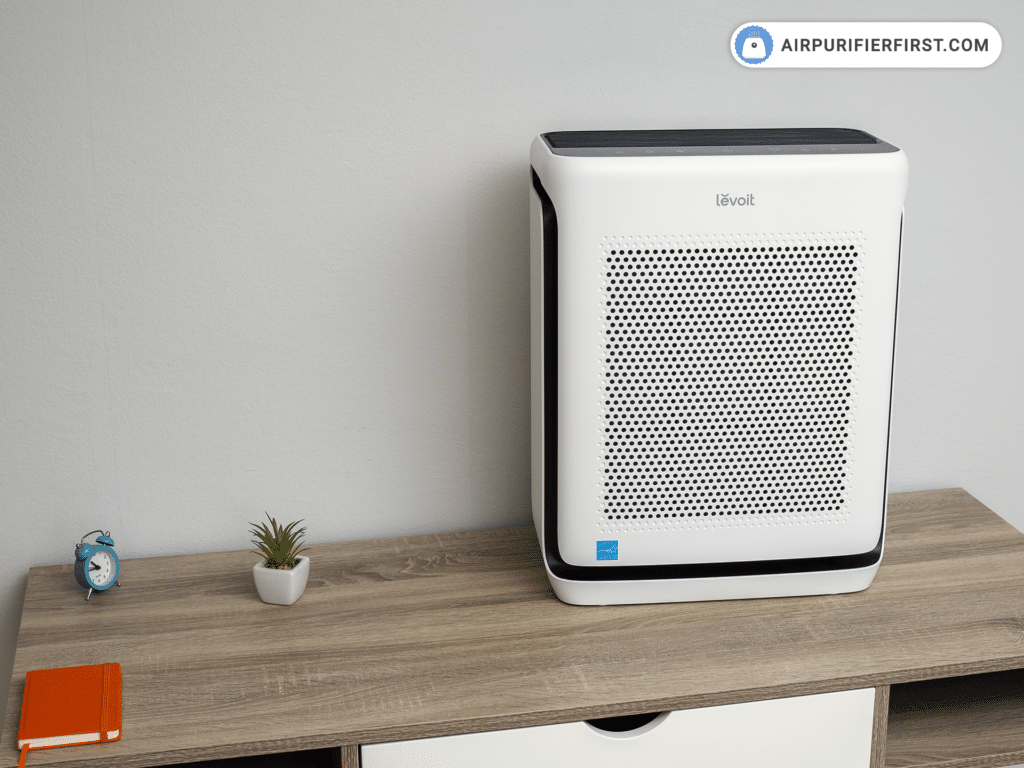The thing is that both air purifiers and dehumidifiers help improve the overall air quality, but they work differently and serve completely different purposes.
Air purifiers remove pollutants from the air such as airborne dust particles, pollen, allergens, smoke, and larger particles like pet hair and fur. In contrast, dehumidifiers remove moisture from the air, making it difficult for mold, mildew, and dust mites to survive.

Table of Contents
Poor indoor air quality can cause basic health issues such as irritation of the eyes, nose, and throat, headaches, dizziness, fatigue, and aggravated or worsened asthma symptoms among asthmatics (according to NEEF). It can also lead to severe conditions such as lung cancer.
On the other hand, overly humid air can also cause health issues, triggering asthma symptoms and leading to poor sleep quality.
So, the biggest question is whether you need both an air purifier and a dehumidifier, or if one will be enough. Let’s dive into the next heading where I explain this dilemma.
Air Purifiers Vs Dehumidifiers Difference: Which One Do You Need?
The truth behind the answer to this question lies in your environment, your awareness about the air quality and humidity levels in there, and your specific needs regarding air quality.

There are many ways to figure out whether you would need an air purifier or a dehumidifier. However, I truly believe that with getting an air purifier you can’t go wrong either way. After years of using and testing these devices, I’m more than sure of the benefits they provide me every day.
I came across an interesting article from the CDC about mold growth, which confirms that high humidity levels are a primary cause of mold. This mold growth can lead to a range of other issues, which can be easily prevented by using a dehumidifier.
However, low air humidity can also be problematic, potentially irritating your nose and causing other health issues. Therefore, I always recommend measuring the humidity in your home before deciding on getting a dehumidifier.
To simplify, you might need an air purifier if:
- You live with pets.
- There are wildfires in your area.
- There is a lot of outdoor pollution during winter that easily seeps indoors.
- You are allergic to pollen.
- You want to reduce cooking odors, and cigarette smoke, or generally improve the air quality in your home.
- Your place is dusty, and you want to minimize airborne dust.
You definitely need a dehumidifier if:
- The humidity levels in your place are consistently above 50%.
- You want to reduce airborne allergens in your home by decreasing humidity levels, such as dust mites and mold.
- You want to prevent mold from showing on your walls.
By considering the facts above, you can easily determine whether you need an air purifier and/or a dehumidifier.
What About 2-in-1 Air Purifiers and Dehumidifiers?
But what if you need both? Is it a good idea to get a 2-in-1 device? Frankly, I’m strongly against two-in-one devices, especially of this type. I’ve previously written an article about air purifiers and humidifiers, where I stated that I don’t think combining an air purifier and a humidifier is a good idea.
I have the same opinion about air purifier and dehumidifier combinations. My perspective isn’t just based on speculation; I have actually tested several combo devices. One such device is the Afloia Q10, whose review I highly recommend you read to understand the main drawbacks of such devices.
To be clear, the main issue is that it’s challenging to find a device on the market that both uses a superior filter for removing airborne particles and does an outstanding job at lowering humidity levels. It’s not that these devices can’t work together; in fact, they can, but I haven’t found one that performs both functions well.
Until I find such a device, I can only suggest that buying an air purifier and dehumidifier as separate devices is a much better choice.
FAQ on Air Purifiers and Dehumidifiers
Can I use an air purifier and a dehumidifier together?
Yes, you can. An air purifier will remove pollutants from the air, while a dehumidifier will remove moisture. These devices operate in ways that don’t interfere with each other.
Do dehumidifiers get rid of smells?
No, they don’t. Dehumidifiers only remove moisture from the air. However, you may notice that the air in your place feels fresher and much improved.
Which is better: an air purifier or a dehumidifier?
Both are great for their purpose. But, if I had to choose, I would always opt for an air purifier over a dehumidifier.
Do air purifiers also add humidity?
Most air purifiers on the market use HEPA and activated carbon filters, which don’t affect moisture levels in the air, meaning they don’t add humidity.
Final Thoughts
I believe I have successfully explained the differences between these two types of devices, and now you should have a clearer understanding of what each device does.
It’s important to remember not to buy any of these devices impulsively. Instead, measure your air quality and humidity levels, consider the suggestions I listed in the article, read more articles on air quality, and then decide which device you should buy.
Also, I’m here if you have any unanswered questions about the topic, and it would be my pleasure to assist you in any way. So please, feel free to use the comment section below for any questions.
Leave a Reply